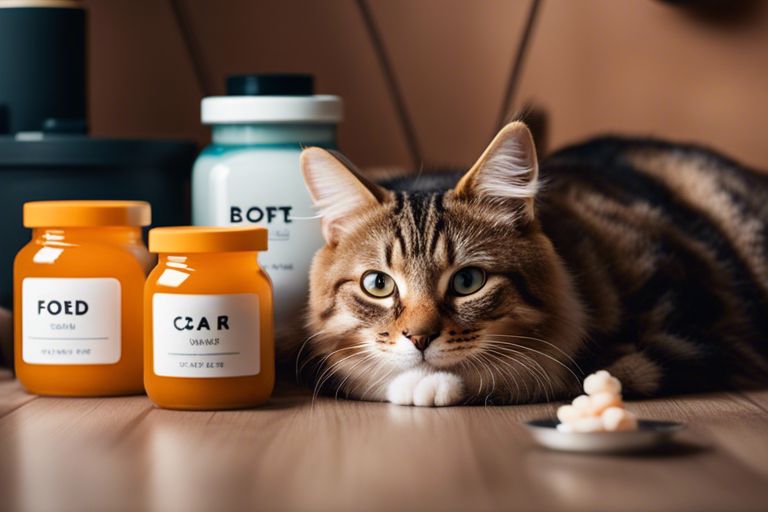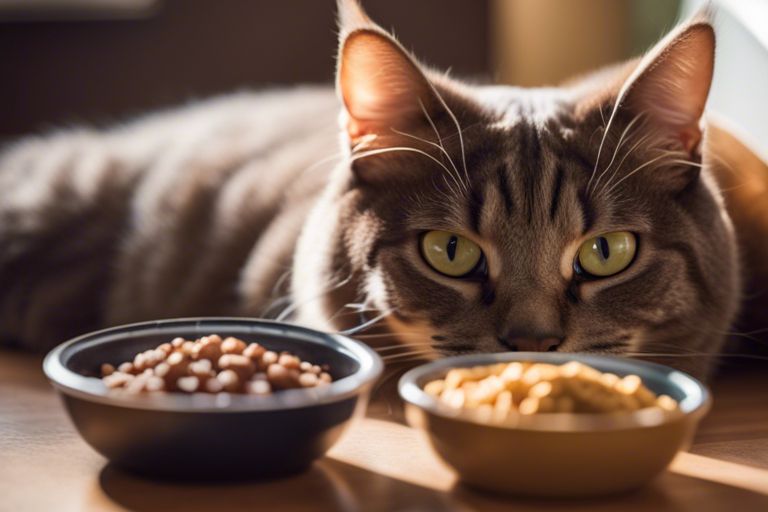Do you find your cat frequently dealing with digestive issues or vomiting after meals? You may be wondering if it’s normal for your feline friend to have a sensitive stomach. Cats can indeed experience digestive sensitivities that can be a cause for concern. It’s important to understand the signs, symptoms, and potential causes of stomach sensitivity in cats to ensure you can provide the best care for your pet. In this blog post, we’ll explore the common reasons for cat stomach sensitivity and provide valuable insights on how to best manage and care for your cat’s digestive health.
Key Takeaways:
- Sensitive stomachs are common in cats: Many cats experience digestive issues at some point in their lives, making it a fairly normal occurrence.
- Diet plays a significant role: The type and quality of food you feed your cat can greatly impact their stomach sensitivity.
- Food allergies or intolerances can be a factor: Cats can develop allergies or intolerances to certain ingredients in their food, leading to digestive issues.
- Consult your veterinarian: If you are concerned about your cat’s sensitive stomach, it’s important to seek advice from a professional to rule out any underlying health issues.
- Consider a specialized diet: Your veterinarian may recommend a specialized diet or prescription food to help manage your cat’s sensitive stomach.

Identifying a Sensitive Stomach
If your cat is experiencing gastrointestinal issues, it may indicate that they have a sensitive stomach. This can be caused by a number of factors, including food allergies, intolerance, or even the quality of the food you are offering. Identifying the root cause of your cat’s sensitive stomach is important in order to provide the best care and treatment.
Symptoms of Sensitivity
There are several signs that your cat may have a sensitive stomach. These can include vomiting, diarrhea, constipation, flatulence, and regurgitation. You may also notice that your cat is experiencing a decreased appetite or weight loss. If you notice any of these symptoms in your cat, it’s important to take them seriously and consider the possibility of a sensitive stomach.
When to Consult a Veterinarian
If you notice any of the symptoms mentioned above, it’s important to consult with a veterinarian. They can help you determine whether your cat has a sensitive stomach and develop a treatment plan to address the issue. Additionally, if you notice any sudden or severe changes in your cat’s behavior or health, it’s important to seek professional help as soon as possible. Your veterinarian can provide you with the guidance and support you need to ensure your cat’s well-being.
Causes of Stomach Sensitivity
Obviously, it can be concerning when your cat seems to have a sensitive stomach. There are several potential causes for this sensitivity, including dietary intolerances and allergies as well as underlying health conditions.
Dietary Intolerances and Allergies
If your cat has a sensitive stomach, it may be due to dietary intolerances or allergies. Some common allergens for cats include dairy, grains, and certain proteins such as chicken or fish. If your cat is experiencing stomach issues, it may be helpful to switch to a hypoallergenic diet to see if their symptoms improve. Keep in mind that it’s important to work with your veterinarian to determine the specific allergen affecting your cat.
Underlying Health Conditions
Stomach sensitivity in cats can also be caused by underlying health conditions such as inflammatory bowel disease, pancreatitis, or gastrointestinal infections. If your cat is experiencing chronic stomach issues, it’s crucial to have them evaluated by a veterinarian to rule out any serious health concerns. Your vet may recommend further testing, such as blood work or diagnostic imaging, to determine the root cause of your cat’s sensitive stomach.
Managing a Sensitive Stomach
For many cat owners, managing a cat with a sensitive stomach can be a daunting task. However, with the right approach and some important considerations, you can help your feline friend lead a comfortable and healthy life despite their stomach sensitivity.
Appropriate Dietary Choices
When it comes to managing your cat’s sensitive stomach, the right diet can make a world of difference. While it may be tempting to constantly switch up your cat’s food to find the perfect match, this can actually do more harm than good. Instead, it’s crucial to consult with your veterinarian to determine the most appropriate dietary choices for your cat. Look for high-quality cat food that is easily digestible, and consider options specifically formulated for sensitive stomachs. Avoid foods with excessive fillers, additives, or artificial ingredients, as these can exacerbate your cat’s stomach issues.
Importance of Regular Vet Check-Ups
Regular veterinary check-ups are crucial for managing a cat with a sensitive stomach. Your veterinarian can provide valuable insight into your cat’s condition and offer personalized recommendations for their care. Through regular check-ups, your vet can monitor your cat’s condition, identify any potential health concerns, and make necessary adjustments to their treatment plan. Additionally, your vet can recommend any necessary diagnostic tests or procedures to rule out underlying health issues that may be contributing to your cat’s sensitive stomach. Early detection and intervention can make a significant impact on your cat’s overall well-being.
Prevention and Care
Despite your best efforts, your feline friend may still experience occasional stomach issues. However, there are several steps you can take to prevent and care for your cat’s sensitive stomach, minimizing the frequency and severity of any stomach problems that may arise.
Tips for Preventing Stomach Issues
One of the most important things you can do to prevent stomach issues in your cat is to provide a high-quality diet. Look for cat foods that are formulated for sensitive stomachs and are free from artificial additives and fillers. Additionally, make sure to provide regular mealtimes for your cat and avoid sudden changes in their diet, as these can trigger stomach upsets. Regular exercise is also crucial for maintaining a healthy digestive system, so make sure your cat stays active. Finally, keep an eye on your cat’s weight to prevent obesity, which can contribute to digestive issues.
- Provide a high-quality diet for your cat
- Stick to regular mealtimes and avoid sudden changes in diet
- Ensure your cat gets regular exercise
- Monitor your cat’s weight to prevent obesity
This proactive approach to your cat’s digestive health can significantly reduce the likelihood of stomach issues.
Home Remedies and Treatments
If your cat does experience an occasional bout of stomach upset, there are home remedies and treatments that can help alleviate their discomfort. For example, providing access to fresh water is crucial, as dehydration can exacerbate stomach issues. You may also want to consider adding probiotics to your cat’s diet to promote a healthy balance of gut bacteria. Additionally, feeding smaller, more frequent meals can help prevent digestive overload and minimize the risk of stomach upset.
Is it normal for my cat to have a sensitive stomach?
From above information, it is clear that a sensitive stomach is a common issue for many cats. While it may not be ideal, it is important to understand that it is normal for some felines to have difficulty with certain foods or environmental factors. If you suspect that your cat has a sensitive stomach, it’s crucial to work with your veterinarian to determine the underlying cause and find a suitable solution. By making small dietary and lifestyle adjustments, you can help manage your cat’s sensitive stomach and improve their overall well-being.
FAQ
Q: Is it normal for my cat to have a sensitive stomach?
A: Yes, it is not uncommon for cats to have sensitive stomachs. Some cats may experience digestive issues or food sensitivities that can cause stomach upset.
Q: What are the common signs of a sensitive stomach in cats?
A: Common signs of a sensitive stomach in cats include vomiting, diarrhea, constipation, flatulence, and a lack of appetite. If your cat exhibits any of these symptoms, it is important to consult with a veterinarian for proper diagnosis and treatment.
Q: How can I help my cat with a sensitive stomach?
A: To help your cat with a sensitive stomach, you can try feeding them a high-quality, easily digestible cat food. It is also important to avoid giving them table scraps and to provide a consistent feeding schedule. Additionally, consulting with a veterinarian to identify any underlying health issues and to explore potential dietary changes can be beneficial.

Jayley, a devoted cat enthusiast, also writer for other cat blog as well. She aims to dedicated to providing comprehensive information, insights, and advice on everything you’d ever want to know about our whiskered companions.
